Welcome Address
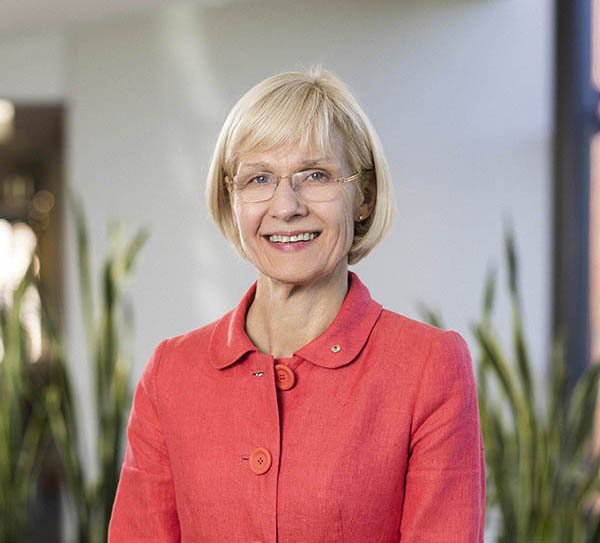
Professor Deborah Terry AO
Vice-Chancellor and President, The University of Queensland
Professor Deborah Terry AO is a highly experienced leader in the Australian university sector – and an internationally recognised scholar in psychology.
Since August 2020, Professor Terry has served as Vice-Chancellor and President of The University of Queensland (UQ). Prior to this, she was Vice-Chancellor of Curtin University in Western Australia, from 2014 to 2020.
Having grown up in Perth and Canberra, Professor Terry completed her PhD in Social Psychology at the Australian National University in Canberra. She moved to Brisbane in 1990 to begin her academic career in UQ’s School of Psychology. Between 1990 and 2014, Professor Terry progressed through a range of academic positions at UQ before moving into senior university leadership roles, eventually becoming Senior Deputy Vice-Chancellor.
Professor Terry was made an Officer in the General Division of the Order of Australia (AO) in June 2015, in recognition of her distinguished service to education in the tertiary sector.
Keynote Speakers

Distinguished Professor Chennupati Jagadish AC
Distinguished Professor, Australian National University
Professor Chennupati Jagadish is a Distinguished Professor at the Australian National University, an acknowledge world leader in the research field of semiconductor optoelectronics, and the President of the Australian Academy of Science. Born into a farming family in a small village in southern India, Jagadish studied by kerosene lamp and had to move in with his math teacher’s family in order to attend high school as the daily return journey to school on foot was not going to be possible. Through the support of family and his teachers Jagadish was able to go on to study physics and electronics at university, ultimately completing a PhD at Delhi University. In 2015, knowing all too well the impact that mentors had on his and his wife’s life and career, Jagadish and his wife Vidya established the Chennupati and Vidya Jagadish Endowment. A scheme that supports students from the developing world undertake research at ANU. In 2016, Jagadish was awarded Australia’s highest honour, the Companion of the Order of Australia (AC), for his service to physics and engineering, particularly in the field of nanotechnology and to education as an academic, researcher, author and mentor. Jagadish considers helping the younger generation to achieve their dreams and passions to be the most exciting and rewarding part of his career. He continues to inspire the next generation to think big and aim high and is known for telling his students to ‘think positive, aim high, work hard and smart. Everything in life is possible’.
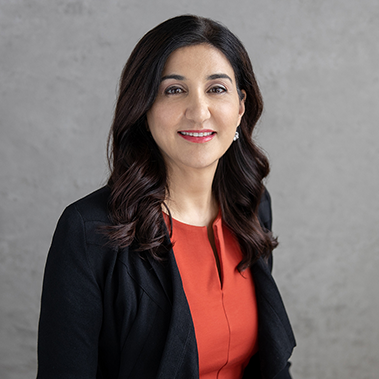
Lisa Annese
CEO, Diversity Council Australia
Lisa Annese has been the Chief Executive Officer of Diversity Council Australia since 2 June 2014. In this role, she leads debate on diversity and inclusion in the public arena, and oversees the development of thought leadership research pieces for Australian workplaces. In 2018, Lisa was named one of the AFR’s 100 Women of Influence. She was elected to the Board of Amnesty International Australia in 2019 and appointed to the Board of Women for Election is 2021. Lisa is a member of Chief Executive Women and Executive Producer of DCA’s podcast, The Art of Inclusion.
Lisa has had a long career in the diversity and inclusion space, across the corporate, government and not-for-profit sector. Some of her career highlights include: advocating for policy action to eliminate workplace harassment and gendered violence and closing the gender pay gap, presenting DCA’s leading research internationally; developing the first ever citation recognising Employers of Choice in Gender Equality and the first ever census of ‘Australian Women in Leadership’ while at the Workplace Gender Equality Agency, and co-authoring “Chief Executives Unplugged: CEO’s Get Real About Women in the Workplace”.
Presenters

Dr Shari Walsh
Psychologist & Career Development Practitioner, Resilient Researcher
Shari Walsh BPsych(Hons) PhD
Psychologist and career development practitioner
Developer and facilitator, Resilient Researcher
Dr Shari Walsh is an experienced psychologist and career development practitioner who has worked within the academic, organisational and private practice sectors. Shari was the owner and Principal Psychologist at Growth Psychology in Brisbane from 2001 – 2020. Shari has extensive experience working with HDR candidates, early career researchers, supervisors and academics and is the developer and facilitator of Resilient Researcher workshops and webinars. Shari specialises in assisting researchers build and maintain positive psychological wellbeing, effective communication and relationship skills, and career confidence during their research roles and beyond. Feedback from Shari’s workshops and webinars indicate that attendees highly value her warm and engaging style, understanding and insight of issues impacting researchers, her practical approach, skills and strategies she offers to facilitate optimal functioning.
Shari has a Bachelor of Psychology (Hons) and Doctor of Philosophy (Psychology) from QUT. She is registered with the Psychology Board of Australia and a professional member of the Australian Association of Psychologists Inc.
www.resilientresearcher.com.au
www.linkedin.com/in/shariwalshpsychology
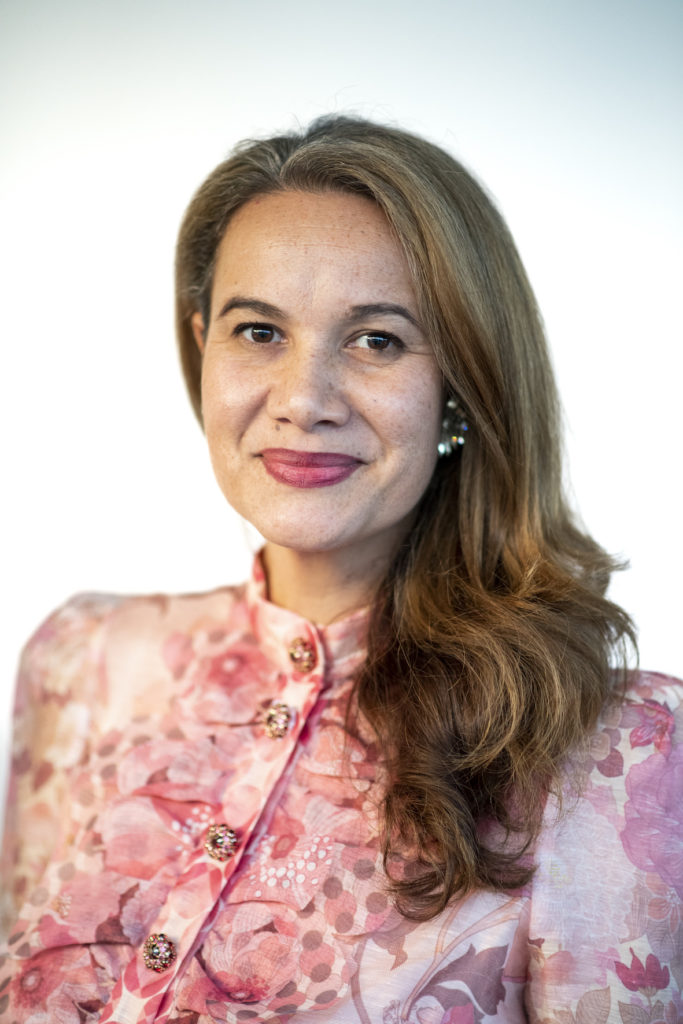
Jas Chambers
Chair and Co-founder, Ocean Decade Australia
Jas Chambers works at the intersection of STEM – science, technology, engineering, and mathematics – governance, policy, and action with a passion for work that calls for collaborative approaches, often in complex stakeholder contexts.
Expert in stakeholder management, organisational culture, reputation, and brand, at Provenance Consulting, she works with clients from higher education, research translation, government, philanthropy and private enterprise. Jas is committed to understanding where organisations and their people have come from to support them in identifying and effectively connecting with stakeholders for future business. Jas has worked in Australian higher education and government in senior leadership roles across STEM operations and organisational transformation, communications, and international science diplomacy including with United Nations Specialized Agencies and the UNESCO Intergovernmental Oceanographic Commission, representing Australia.
Jas is the Chair and Co-Founder of Ocean Decade Australia, a not-for-profit charitable organisation that is connecting Australia’s ocean stakeholders. She is committed to learning and sharing knowledge about the United Nations Sustainable Development Goals, and in particular SDG14 – Life below Water. Jas as is a graduate of Marine Science and Psychology, (University of Sydney 1997), Communications, (UTS 1998), GAICD (2010) and Harvard Business School (2018). Jas serves as Secretary to Science & Technology Australia, Chair of the Sydney Institute for Marine Science Foundation and Board Member of the Grok Academy. Jas chaired the NSW Inspiring Australia Executive Committee on behalf of the NSW Chief Scientist and Engineer for a decade, stepping down in July 2021.
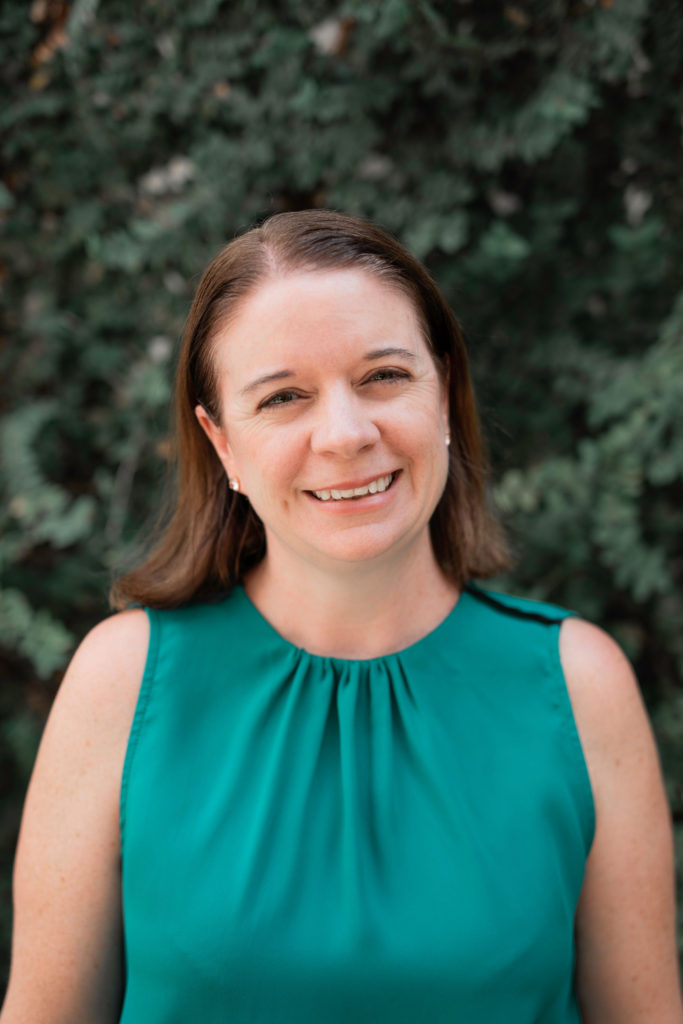
Nia Lloyd
Career Coach, Career Voice
Nia is passionate about assisting people through all stages of their career. With a Graduate Certificate in Career Development, she believes in a holistic approach to career development and understands the importance of self-knowledge and knowing your strengths. Coupled with a solid HR and Recruitment background both in Australia and overseas, she offers practical guidance and assistance to realise where you would like to be and strategies to get there. Building confidence, understanding yourself, learning about opportunities, optimism and reaching your goals is what she aims for her clients to achieve.
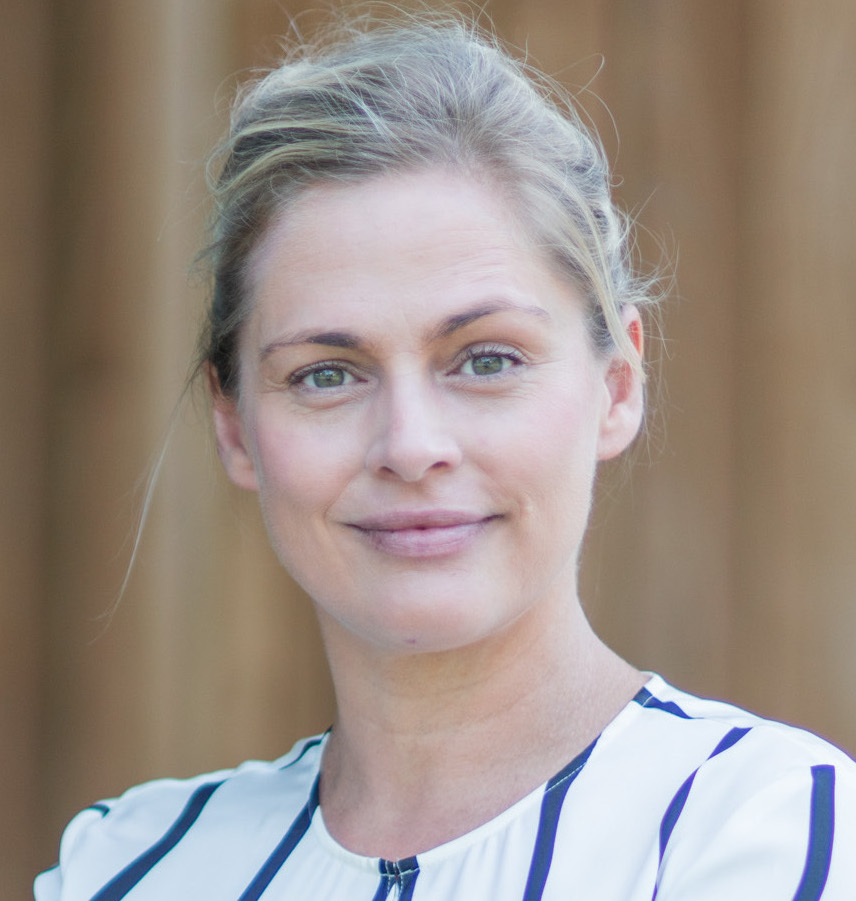
Lucy Lloyd
CEO and co-founder of Mentorloop
Running strategy for leading global brands for over 10 years, Mentorloop CEO and co-founder Lucy Lloyd has managed the development of hundreds of digital campaigns, websites, apps and SaaS products. In 2016 Lucy parlayed this experience into co-founding Mentorloop, a software platform helping organisations build a scalable mentoring culture.

Winitha Bonney OAM
Winitha Bonney is the leading expert in helping corporates build inclusive cultures and is Australia’s first and foremost thought leader in leadership for People of Colour. In 2021 she was awarded an Order of Australia Medal for her extensive work in diversity and inclusion. Winitha has over 22 years of experience in executive roles and has successfully founded several businesses. She has an incredible amount of unique insights, experiences and expertise to help People of Colour advance, and to support executives, Boards, government and businesses to create inclusive, connected and engaged communities.
You can connect with Winitha at: www.winitha.com
Career advisors
Nicola Wood
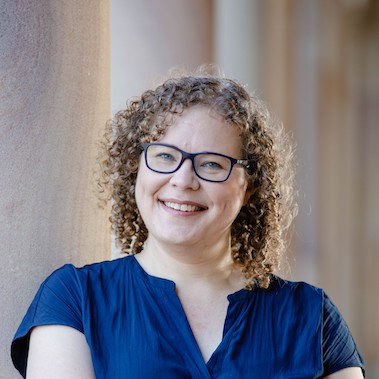
Dr Rachael Pitt
Dr Rachael Pitt (BA Hons, DPsychEd) is an expert in doctoral and researcher development, employability and careers. With 20 years’ experience in both academic and professional positions at Australian universities, she has worked extensively across disciplinary and professional boundaries.
Rachael’s roles have included academic research positions, interdisciplinary undergraduate teaching and program coordination, project management, and development support for higher degree by research (HDR) candidates and their supervisors. She has collaborated on multiple research projects, including an examination of the employment outcomes of PhD candidates involved with Cooperative Research Centres and what academic job adverts can tell us about employer expectations for early-career researchers.
Rachael’s role as HDR Careers Advisor at The University of Queensland allows her to provide focused career development and employment support for the university’s HDR candidates. Here she runs career development workshops, offers individual career consultations, and facilitates the HDR Career Development Mentoring Program. Added to this, she is the training facilitator for the PostAc® researcher employment service.
Panel 1: Cool Careers: Life Outside Academia
This panel shares the stories of STEM PhD graduates who have moved away from academia to work in diverse fields. Why did they make the leap and how did they go about it?
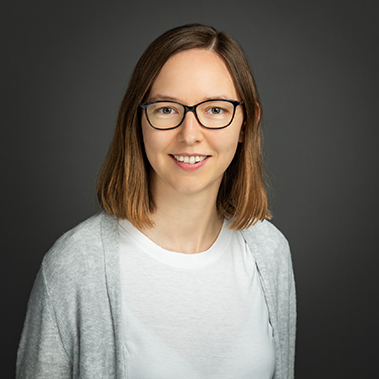
Dr Elizabeth Bridge
Strategic Talent Partner, Quantum Brilliance
Quantum physicist turned technical recruiter. Liz’s background is in quantum physics, with a PhD in atomic and laser physics from the University of Oxford and multiple years of research experience in the UK and Australia, her passion for quantum technologies has led her to pursue a career with Quantum Brilliance: https://quantumbrilliance.com/.
Quantum Brilliance is a Australian-German startup developing room-temperature quantum computers for a wide range of applications. Liz has come on board to help Quantum Brilliance find the talented individuals the company needs to realise its dream of ubiquitous quantum computing.
Liz is also an advocate for equity and diversity in STEM subjects. She has been involved in numerous outreach activities for high school students considering studying STEM subjects at university and continues this work with Quantum Brilliance.
Liz chose to help develop and support the inSTEM networking event for under-represented and marginalised groups in STEM as she believes networking and creating a supportive community are key aspects that affect career opportunities and choices of those in our field.
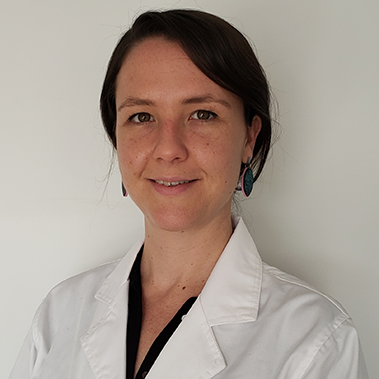
Dr Siobhan Bradley
Energy Group, Department of Environment, Land, Water and Planning
Originally a physical chemist, I now work in emerging energy technologies within the Victorian Government’s Department of Environment, Land, Water and Planning.
As a senior project officer, I manage policy research projects aimed at supporting the development of Victoria’s renewable hydrogen industry. I am involved in the development of grant programs for hydrogen feasibility studies, pilots, trials and demonstrations. Beyond hydrogen I also support projects investigating how government can best support emerging energy technologies.
I have a keen interest in the great energy transition, having worked in the area of renewable energy for the past 6 years and prior to that during my PhD studies. The projects I’ve worked on have been broad ranging, covering areas such as hydrogen generation, photocatalysis and solar energy conversion and battery storage. All in all, this has given me a broad technical understanding of a variety of technologies and a passion for seeing these technologies rolled out in the energy sector.
I strongly believe that diversity of people in our scientific organisations is essential to the diversity of ideas and the novelty of solutions to the great scientific challenges of our time. The diversity we need starts with the building of inclusive workplaces that welcome differences in life experience. I am delighted to be a part of a conference that celebrates this diversity and look forward to hearing the variety of perspectives on offer.
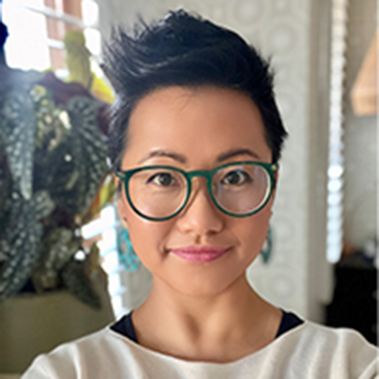
Dr Tich-Lam Nguyen
Chief Operating Officer, ARC Centre of Excellence in Future Low-Energy Electronics Technologies (FLEET)
Making a difference is my mantra! What excites me is innovative collaborations and connecting expertise to create impactful opportunities. I hold a PhD in Chemistry and a Master of Management. I have 15 years of experience in the higher education sector as a research centre manager and a researcher in Nanoscience.
As Chief Operating Officer of FLEET, I’m responsible for the research Centre’s financial and operational effectiveness and the oversight of activities contributing to the development and delivery of its strategic goals. What I enjoy most in my job is working amongst brilliant scientists and really bright students who are passionate about finding a sustainable solution for the energy challenge.
I really look forward to contributing to inSTEM because as a woman of colour in STEM, this topic is very close to my heart! Research has shown that diverse teams are smarter and produce better outcomes. People can only contribute their best when they feel that they are supported and respected and their contributions valued, regardless of their cultural, social-economic backgrounds, personal identity or beliefs. By creating equity in STEM, we are making the most of available grey matters and driving technological innovation and economic growth.
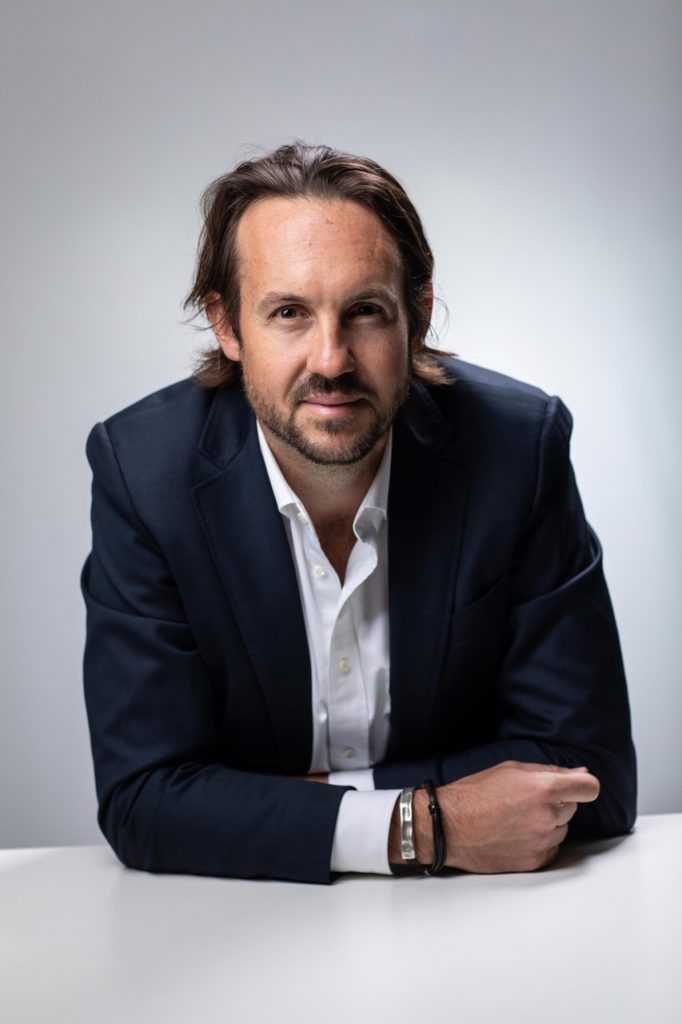
Associate Professor Will Grant (Moderator)
Australian National University
Will Grant is Associate Professor in Science Communication at the Australian National Centre for the Public Awareness of Science at ANU. Awarded for his public policy and outreach work, Will has authored or co-authored dozens of works in various scholarly outlets (including Public Understanding of Science, Environmental Communication, Computers in Human Behaviour, Scientometrics and Higher Education Policy), and written commissioned and pitched articles and opinion pieces in high impact public facing outlets (including The Guardian, The Sydney Morning Herald, The Australian, The Conversation, Times Higher Education, The Canberra Times, The Brisbane Times, Crikey, The Drum, Climate Spectator and ABC Environment), focusing mostly on the interaction of science, politics and technology. He is co-founder of the researcher employment service PostAc. He tweets at @willozap.
Panel 2: Full STEM Ahead: Your Career Awaits
Panellists will share their stories of success and failure and the strategies they used to navigate their own careers as individuals from underrepresented groups in STEM.
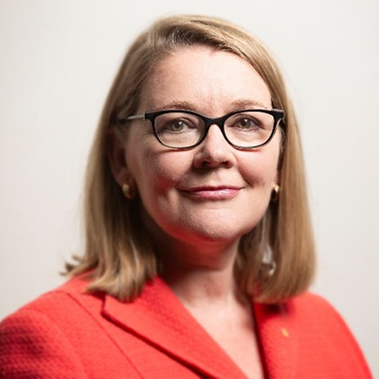
Professor Jenny Martin
Deputy Vice-Chancellor (Research and Innovation), University of Wollongong
Professor Jennifer Martin was appointed Deputy Vice-Chancellor (Research and Innovation) in March 2019. Prior to her current role, Professor Martin held the position of Director of the Griffith Institute for Drug Discovery at Griffith University in Queensland, and before that was a Research Fellow at the University of Queensland holding ARC QEII, Professorial and Laureate Fellowships.
As DVC(R&I) at UOW, Professor Martin led the development of the University’s 2020-2025 research and innovation strategy focussing on a triple bottom line of performance, people and planet. The UN Sustainable Development Goals and equity and diversity were embedded throughout the strategy. Her advocacy led to the appointment of UOW Associate Deans Equity Diversity and Inclusion in each Faculty, and to prioritising internal research funding to early and mid-career researchers. Professor Martin was a founding member of the Science in Australia Gender Equity (SAGE) Steering Committee, that established the Athena SWAN pilot to address gender equity in science, technology, engineering, maths and medicine.
Professor Martin is internationally renowned for her protein crystallography and structural biology research and has made seminal discoveries in bacterial redox biochemistry. Professor Martin is the Immediate Past President of the Asian Crystallographic Association, a current member of the Executive Committee for the International Union of Crystallography (IUCr), and the current Chair of the IUCR’s Gender Equity and Diversity Committee. In 2022, she was appointed as chair of the Advisory Committee for the WorldWide Protein Data Bank.
In 2017, Professor Martin was elected Fellow of the Australian Academy of Science and in 2018 she was awarded the highest honour in the Australian Honours system: Companion of the Order of Australia for “eminent service to scientific research, particularly in the field of biochemistry and protein crystallography applied to drug-resistant bacteria, as a role model, and as an advocate for gender equality in science”.
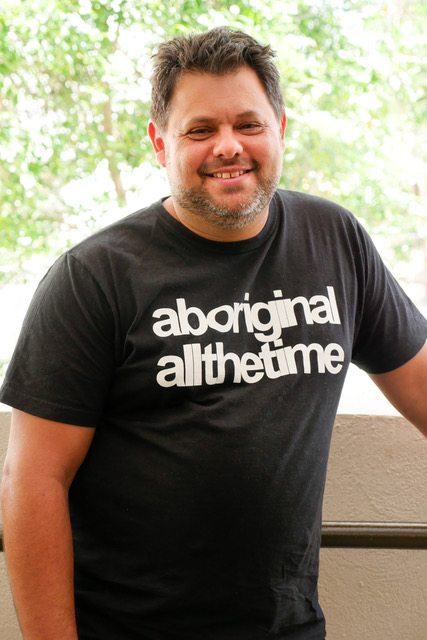
Professor Chris Matthews
Associate Dean (Indigenous Leadership and Engagement) in the Science Faculty at University Technology of Sydney (UTS)
Professor Chris Matthews is from the Quandamooka people of Minjerribah (Stradbroke Island) in Queensland Australia. Chris received a PhD in applied mathematics from Griffith University and was a Senior Lecturer in applied mathematics at the Griffith School of Environment, Griffith University. Over the last ten years, Chris developed a deeper interest in mathematics education for Aboriginal and Torres Strait Islander learners and exploring the connections between mathematics and Aboriginal and Torres Strait Islander knowledges. Chris is currently the Chair of the Aboriginal and Torres Strait Islander Mathematics Alliance (ATSIMA) that aims to transform mathematics education for Aboriginal and Torres Strait Islander learners. He is also a senior curriculum advisor for Australian Curriculum, Asessment and Reporting Authority (ACARA) for the National Mathematics Curriculum working to including Aboriginal and Torres Strait Islander perspectives in the curriculum. Chris has recently been appointed the Associate Dean (Indigenous Leadership and Engagement) in the Science Faculty at University Technology of Sydney (UTS). As part of this role, Chris will be leading a team of academics to transform the Science curriculum to meet the Indigenous Graduate Attribute and develop a Community of Indigenous STEM professionals at UTS.
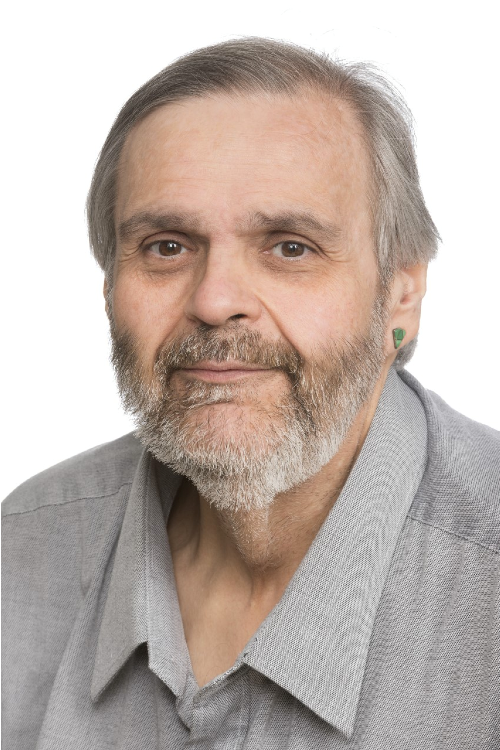
Professor John Lattanzio
School of Physics and Astronomy, Monash University
John has worked in theoretical astrophysics for 40 years, but he still hopes that one day he will get it right. He did his PhD at Monash then worked at the University of Toronto, Lawrence Livermore National Lab, UC Berkeley and the Institute of Astronomy at Cambridge (UK). In this time he has obviously worked with many diverse people, and this led him to become an LGBTIQ+ Ally at Monash some years ago.
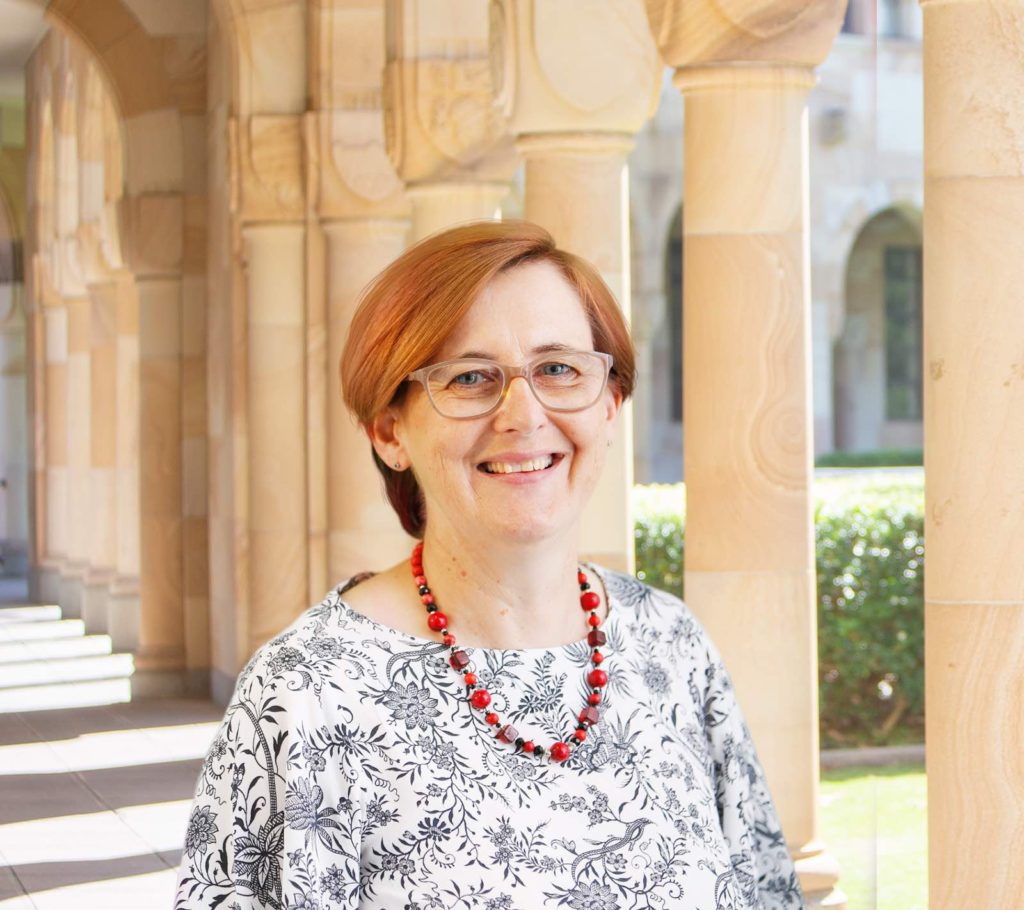
Professor Jenny Seddon (Moderator)
Associate Dean Research and Deputy Executive Dean in the Faculty of Science, The University of Queensland
Professor Jenny Seddon has been the Associate Dean Research and Deputy Executive Dean in the Faculty of Science at UQ since 2019. In this role, she supports the development of HDR students, early career academics and academics across a broad range of scientific disciplines. She has been a strong contributor to equity, diversity and inclusion in her roles at UQ’s veterinary school and in the Faculty of Science. She introduced a mentoring program for EMCAs in Science to support the career development of academics. Jenny worked with a university in Viet Nam on a project to improve veterinary education in the region. Jenny is a strong supporter of women in science, being only the second women promoted to professor in UQ’s School of Veterinary Science.
Jenny has an international research reputation in conservation genomics of wildlife and veterinary science. She has research experience through positions in Australia, UK and Sweden and worked with a wide range of species, most recently ticks, koalas and dugongs.
Panel 3: Diversity in STEM: How to attract and retain a diverse workforce
You can’t be what you can’t see. This panel is filled with individuals who have become advocates and role models for their communities, to ensure not only our workplaces, but also our world, becomes more inclusive and equitable.
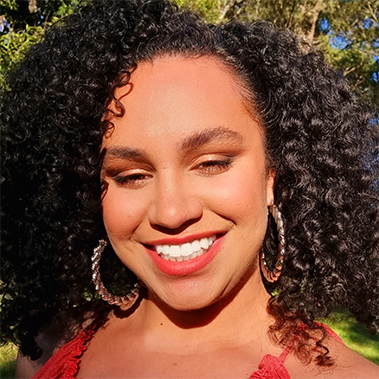
Celeste Carnegie
Manager of Community Programs & Engagement, Indigitek
Celeste Carnegie is a Birrigubba Juru and South Sea Islander Woman from Far North Queensland who has been at the forefront of STEM education for Aboriginal and Torres Strait Islander youth. Celeste is passionate about creating opportunities surrounding digital technologies and creative solutions in the support of communities. As a young and focused Aboriginal woman, she endeavours to champion the ideas and build platforms for First Nations people everywhere, building capability and confidence. She is passionate about digital inclusion and empowering young people to achieve their goals in technology.
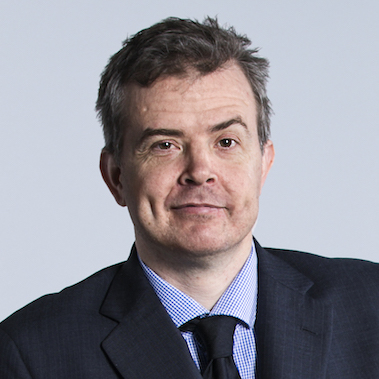
Dr Ben Gauntlett
Disability Discrimination Commissioner, Australian Human Rights Commission
Dr Ben Gauntlett commenced his 5 year term as Disability Discrimination Commissioner at the Australian Human Rights Commission on May 7, 2019.
Prior to commencing as Disability Discrimination Commissioner, Ben worked as a barrister in Western Australia and Victoria with a broad ranging practice. He has also worked as an associate at the High Court of Australia, as Counsel Assisting the Solicitor-General of the Commonwealth, a solicitor for a large commercial law firm and taught law in Australia and the United Kingdom. Ben studied at the University of Oxford as a Rhodes Scholar.
As Disability Discrimination Commissioner, Ben advocates to remove barriers to people with disability participating in society and to ensure the human rights of people with disability are respected.
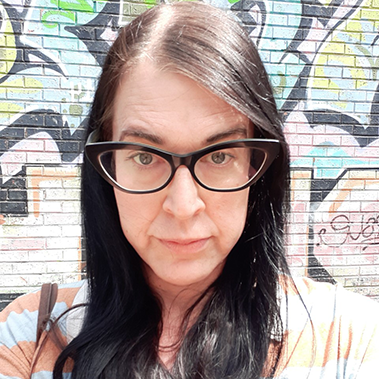
Associate Professor Deanne Fisher
Centre for Astrophysics and Supercomputing, Swinburne University
I’m an Associate Professor in the Centre for Astrophysics and Supercomputing at Swinburne University. I received my PhD from the University of Texas in 2010. I have been a CARMA Research Fellow, Swinburne Director’s Research Fellow and an ARC Future Fellow. I also served as the Deputy Director for the Centre for Astrophysics at Swinburne. I enjoy studying galaxies with extremely high star-formation rates using the largest optical and radio telescopes in the world, and am lead investigator for multiple international-scale research programs. Along with this I am also the only out transgender woman working as a faculty level in astronomy & physics in Australia. I am one of fewer than five out faculty members in astronomy worldwide. I have served as board member of the pioneering support organization for LGBTI+ people in STEMM called QueersInScience, and have done award-winning work for support of LGBTI+ students.
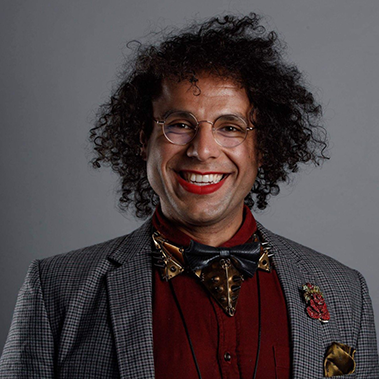
Dr Mohammad Taha (Moderator)
Research Fellow, University of Melbourne
Dr Taha is a non-binary trans queer person of colour, advocate, scientist, engineer, reader, writer, and aspiring filmmaker. They are research fellow at the Faculty of Engineering and Information Technology at the University of Melbourne. Mohammad is fascinated by the building blocks of the universe (or potentially the multiverse) and how we can use them to construct our collective future. From climate change and the future of electronics to fighting bigotry and injustice Mohammad is sure we can face it all. Dr Taha believes that diversity must be intersectional and sophisticated to truly capture and enhance the experiences of people who belong to multiple minority groups. To Dr Taha, gender, sexuality, STEMM, and creativity are intertwined and they use all of them to do science and compose words to invoke thought and self-exploration.
The lack of diversity in STEMM is not for the lack of ability or desire of underrepresented groups, including queer and trans people of colour. It is because a lot of systems in STEMM are hostile and unwelcoming towards people who are not ‘the same’ as everyone. This hostility and exclusion intentional or otherwise are manufactured and incredibly fragile and can be rectified by underrepresented groups belief that they’ll overcome.
On institutional front, show me your retention plan not your temporary 2-year hires without providing underrepresented groups the tools and resources to succeed and then claim they are not ready. How could they be? Their counterparts are being prepared bespoke place in STEMM from day one. If you don’t have one, ask, because we’ve been thinking about it for a while. Diversity cannot work until you go all in on it’s the moral and practical way forward. Maybe then we’ll see less homogeneous portraits in our leadership as well.
Panel 4: Using your Power and Privilege for Good
Hear from leaders who are using their positional power and social privilege to advocate for people with less privilege. Why and how have they stepped up?
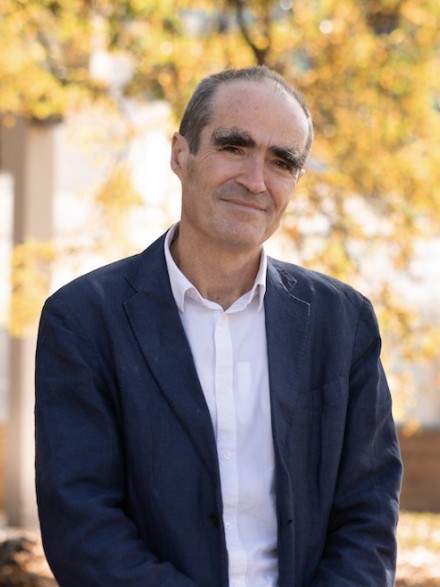
Professor Kiaran Kirk
Dean, ANU College of Science
Kiaran Kirk carried out his PhD in the Department of Biochemistry at the University of Sydney (1985-1988). In 1989 he went to the Oxford University Laboratory of Physiology where he held an Oxford Nuffield Medical Fellowship, the Staines Medical Research Fellowship (Exeter College) and a Lister Institute Senior Research Fellowship. He returned to Australia in 1996 to head the Department of Biochemistry and Molecular Biology in the Austalian National University Faculty of Science, holding this post until June 2009 when he took up the position of Director of the newly-created ANU Research School of Biology. From 2014 to 2017 Kiaran served as the Dean of the ANU College of Medicine, Biology and Environment. Since August 2017 he has been Dean of the ANU College of Science. He was elected a Fellow of the Australian Academy of Health and Medical Sciences in 2017.
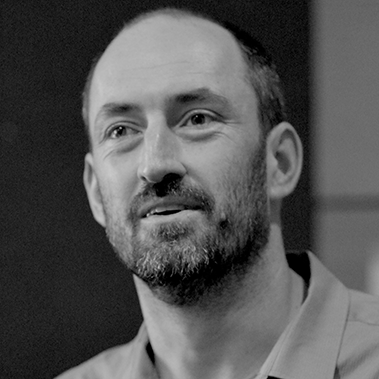
Professor Jared Cole
Chief Investigator, ARC Centre of Excellence in Exciton Science
I am a theoretical physicist specialising in quantum physics and decoherence theory, and its application to solid-state systems. My work focuses on using mathematical and computational models to describe the design and operation of nanoscale computing and electronic devices.
As a relatively young “senior” leader in physics in Australia, I’m painfully aware of the challenges faced by scientists from underrepresented groups, as well as those with mental health challenges. My aim at the inSTEM conference is to listen and learn, to better understand what I and other science leaders can do to help bridge the gap.
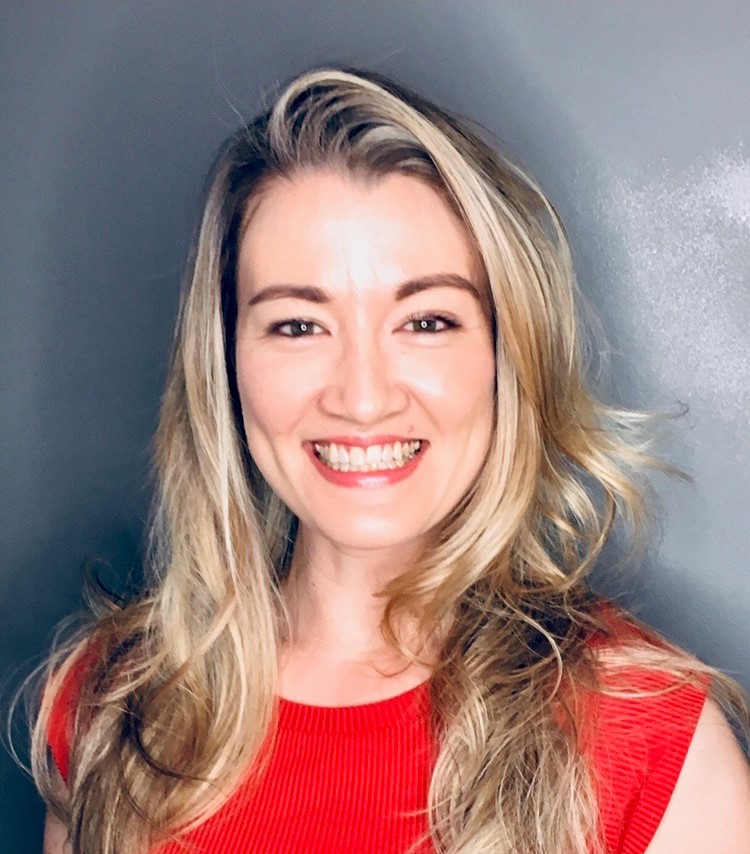
Liz Devine
Associate Director, People & Change, KPMG
Liz is an Associate Director in KPMG’s People and Change practice in Brisbane, and brings over ten years’ experience in organisational development and transformational change. Liz works with clients across national and state government, and is particularly passionate about the Education and national Security and Justice Sectors. Helping organisations navigate complex human centred challenges as they cultivate new ways of working to meet modern challenges is Liz’s professional pursuit. Having studied at QUT (BA Creative Industries, Interdisciplinary) and UTS (Master Business Administration) Liz specialises in employee and stakeholder engagement, with vast experience in developing strategic change interventions in complex business transformation programs
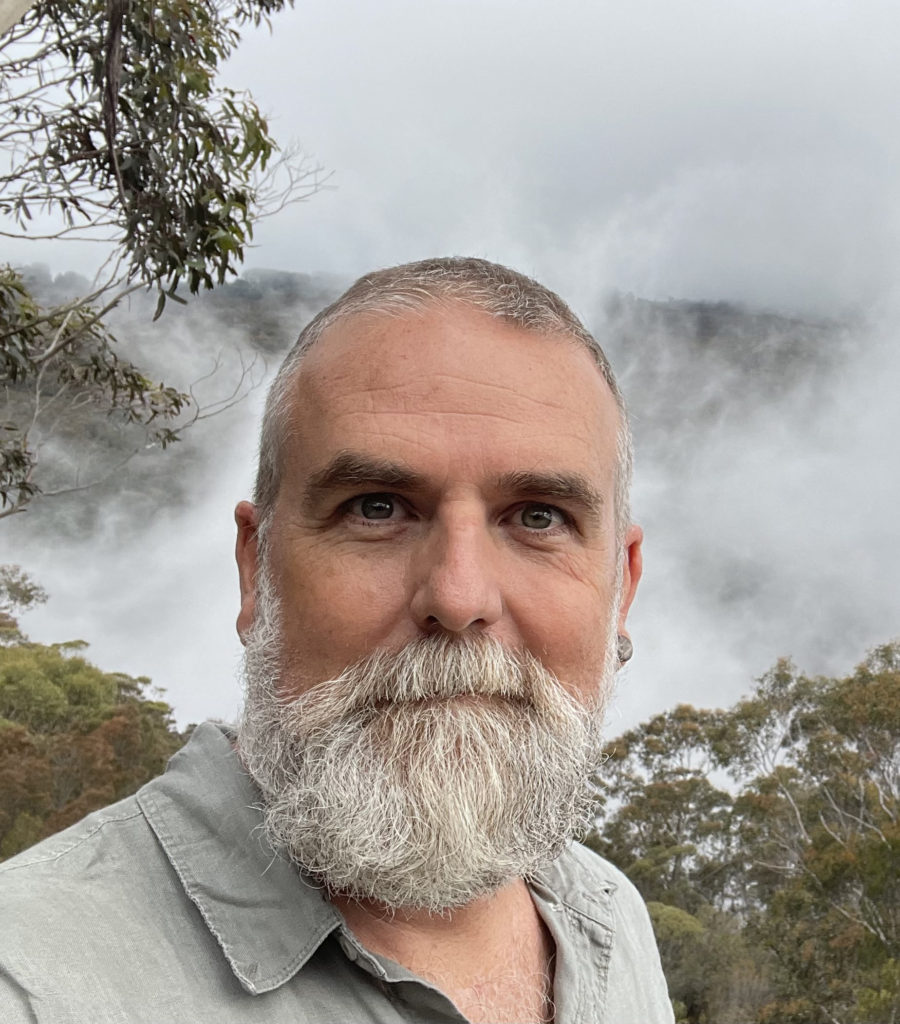
Associate Professor Steve Salisbury
Associate Professor, The University of Queensland
Steve Salisbury is an Associate Professor in the School of Biological Sciences at The University of Queensland, where he is head of the UQ Dinosaur Lab. He is also an Associate Editor for the Journal of Vertebrate Paleontology, and a Scientific Board member of the Jurassic Foundation, an international funding body dedicated to helping advance the careers of young scientists and researchers in underprivileged nations. His quest to understand the world of dinosaurs has taken him all over Australia, New Zealand and even the frozen vastness of Antarctica.
In 2010, Steve found himself in the middle of a high-stakes public tussle with multi-national resource companies and the Western Australian Government over plans to build a $40+ billion LNG precinct at Walmadany (James Price Point), 50 km north of Broome. In response to the government’s proposal, the area’s Traditional Custodians, the Goolarabooloo people, contacted Steve for help. For them, the area was central to a Song Cycle that involves a Dreamtime creator being known as Marala, the Emu Man. Thousands of 130-million-year-old dinosaur tracks that trace Marala’s journey along this stretch of coastline were at stake. Not only did Steve’s research help secure National Heritage Listing for the dinosaur tracks, but subsequently contributed to the collapse of the LNG development, saving the coastline and its ancient Song Cycle.
Steve has continued to work closely with Goolarabooloo and other First Nations peoples in the Kimberley. He now using his profile to help decolonise palaeontology in Australia and give First Nations peoples a stronger voice within the natural sciences. As Chair of the School of Biological Sciences First Nations Engagement Committee he passionate about making First Nations engagement a central part of many of the teaching and research activities at UQ, and hopes to creates new pathways for First Nations students to enter science.
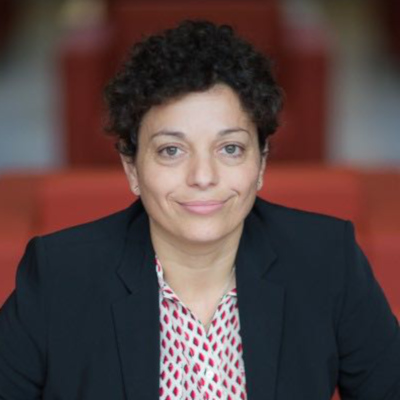
Professor Celine Boehm (Moderator)
Head of School of Physics, University of Sydney
An astroparticle physicist who studies both cosmology/astrophysics and particle physics, Professor Boehm has worked around the world, most recently as Chair of Physics at the Institute for Particle Physics Phenomenology at Durham University, in the UK. She previously held academic positions in physics at the Laboratoire d’Annecy-le-Vieux de Physique Théorique in France, CERN in Switzerland, and Oxford University in the UK. Professor Boehm completed her PhD in Theoretical Physics at the Ecole Normale Supérieure Paris in France and her Master of Science at both Ecole Normale Supérieure and the University of Pierre and Marie Curie in Paris. In parallel, she completed a Master of Science in Engineering at the Ecole Polytechnique Féminine in France. In recognition of her significant contributions to physics and demonstrated impact in her field, Professor Boehm was elected as a Fellow of the Institute of Physics in the UK in 2015. Joining the University of Sydney in January 2018, Professor Céline Boehm is only the second woman to be Head of School for Physics in the school’s history.
